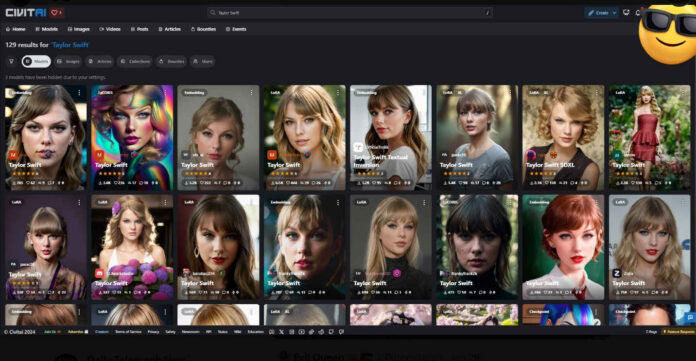The explicit images, a disturbing misuse of artificial intelligence, have been dubbed “alarming” by White House spokesperson Karine Jean-Pierre, who vowed swift action against this new wave of non-consensual porn.
The steamy photos, which are nothing but a high-tech fabrication, spread like wildfire across social media, racking up a staggering 47 million views before the account posting them was shut down by X (Twitter), the Elon Musk owned platform which has been criticised for its alleged lax content management, throwing the issue of AI abuse into the national spotlight.
Jean-Pierre, in a dramatic news briefing, declared war on the disturbing trend, calling for immediate legislative action and a crackdown by social media giants on the sharing of such deceptive and invasive content. “We’re going to do what we can to deal with this issue,” she asserted, signaling a major battle against the misuse of AI in creating explicit celebrity deepfakes.
The controversy took a bizarre turn when it was revealed that searches for ‘Taylor Swift’ on the infamous platform were mysteriously returning errors, with fans claiming the term had been “banned”. Yet, sly users found a workaround, still able to pull up the fake images using specific search tricks.
The scandalous images first emerged in a shadowy Telegram group dedicated to AI-generated explicit images of women, and quickly spread to other seedy corners of the internet like 4chan, before hitting mainstream social media and causing a sensation.
These are “AI models” distributed for mass-producing sexual deepfakes of Taylor Swift.
AI researchers continue to justify this by saying,
“LEARNING for RESEARCH PURPOSES falls under FAIR USE , therefore it’s LEGAL.
The flow of time and technology cannot be stopped.” https://t.co/P5fxYyMP7e pic.twitter.com/XZdSwZHPlp— XO (@MEGUjuke) January 29, 2024
Tech giant Microsoft, whose Designer program was reportedly used to create these fake nudes, is in the hot seat. The company is scrambling to investigate and take action, emphasising that their terms of service strictly prohibit the creation of adult or non-consensual intimate content.
As the controversy spirals, US lawmakers are stepping into the fray with the introduction of the No Artificial Intelligence Fake Replies and Unauthorized Duplications Act (NO AI FRAUD Act) in the House of Representatives, aimed at putting a federal leash on the use of AI for audio and video deepfakes.
